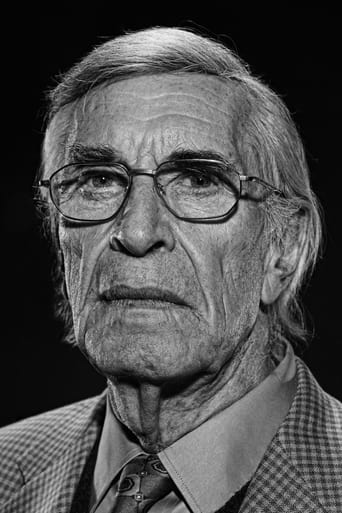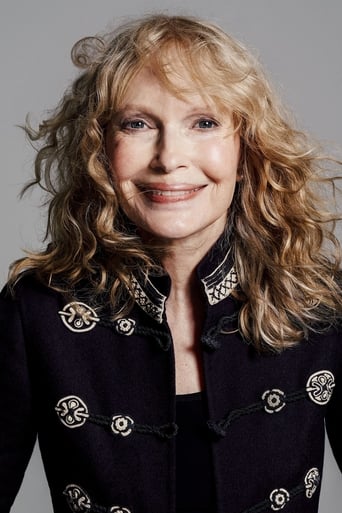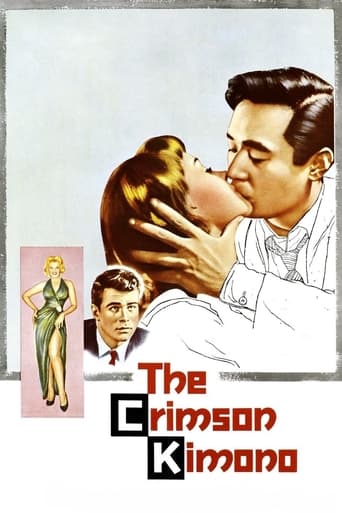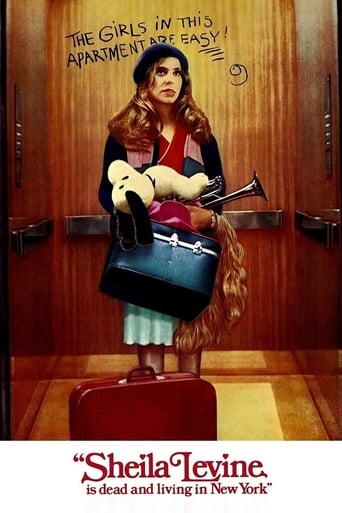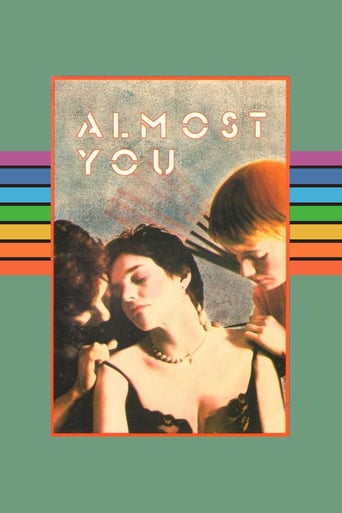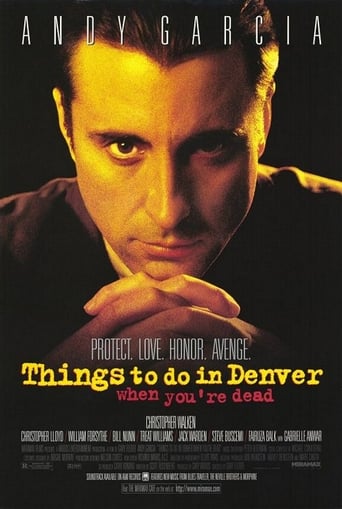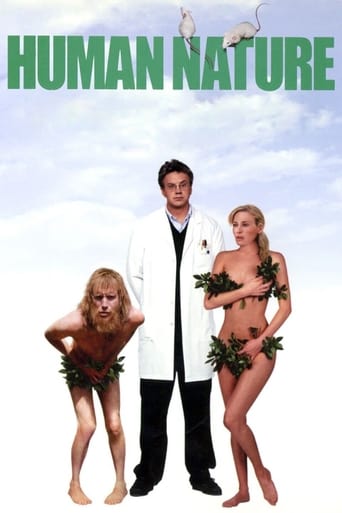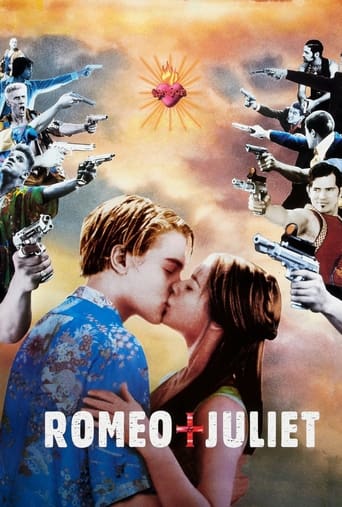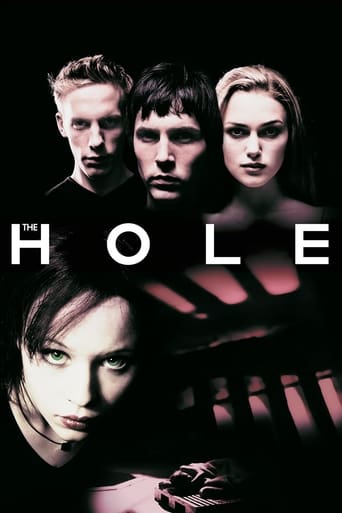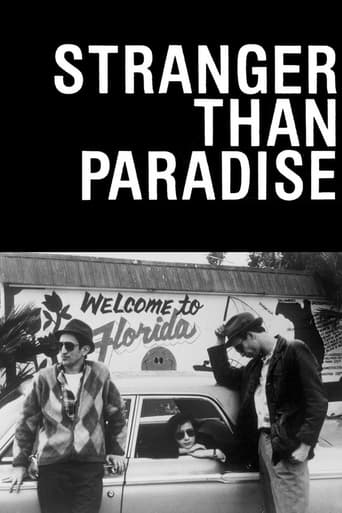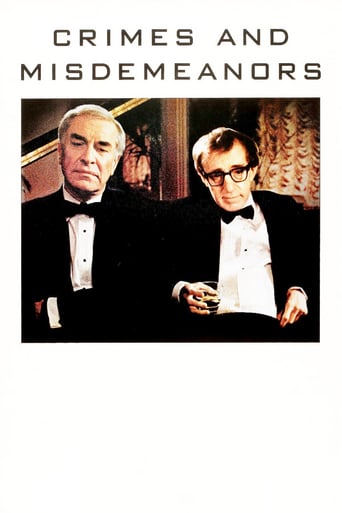
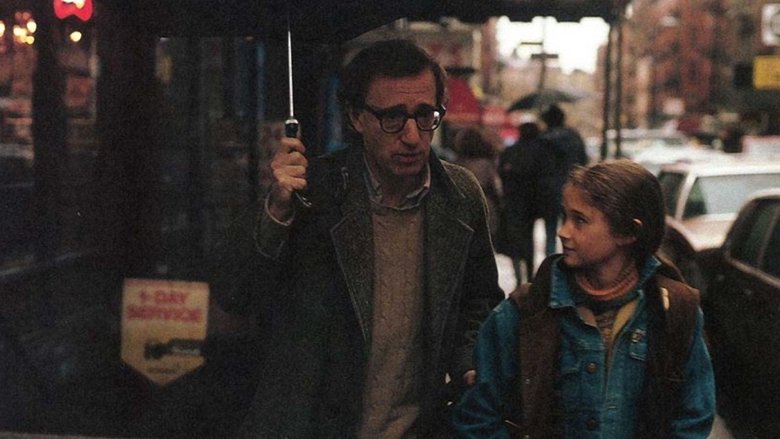
Crimes and Misdemeanors (1989)
An ophthalmologist's mistress threatens to reveal their affair to his wife, while a married documentary filmmaker is infatuated by another woman.
Watch Trailer
Cast


Similar titles

Reviews
The Three Acts:The initial tableaux: Ophthalmologist Judah is successful and respected. However, he's been having an affair with Dolores. Dolores wants to bring up the matter with Judah's wife Miriam, and clear the air. Judah would rather not.Cliff is a maker of small films who has little success. His wife Wendy speaks to her brother Lester, who is very successful in Hollywood. She convinces Lester to get Cliff a job filming a biography on Lester. Cliff takes the job in order to fund his own projects.Delineation of conflicts: Lester does not really want Cliff to direct his biography, but he does it as a favor to Wendy. Cliff does not want to do the piece, since he has no respect for Lester's pomposity. Cliff tries to connect with Halley, Lester's producer, in order to get additional funding for his documentary on Professor Levy. Filming Lester being Lester is a grand pain for Cliff.Judah wants to break up with Dolores, but Dolores has other ideas, which include seriously fouling up his personal and professional life. Jack suggests a solution to Judah's problem, but Judah has qualms. Ben, Judah's rabbi and patient, counsels him to take the higher road: let the meeting happen, let disclosure happen, keep a clear conscience. Dolores escalates, so what does Judah do?Resolution: Judah needs to solve his moral, financial, and personal dilemmas. Cliff needs to find his own success, and perhaps reignite his married life.
This is a deftly made movie with parallel stories and portrayal of the world of Jewish New Yorkers. The angst over whether there is a true morality from an omnipotent God makes the film thought-provoking and, to some, disturbing. Allen has grappled now twice with this idea of getting away with murder and whether one can go on to live a good life without fear of retribution. He explored it in this film, and then again in Matchpoint. In Crimes and Misdemeanors, the issue was whether God was watching and if the guilty character could live well with his conscience. In Matchpoint, retribution is a matter of random luck.The conclusions of both films can seem brilliant to some, but quite troubling to others. The reason this is so, is because Allen's main question, "Can the murderer get away with it?" hinges on one important assumption: that all rewards and punishments occur in this life...and that moral behavior is subject to rewards and punishments. This is in fact a very Jewish point of view (hence the family debate in their Midwood, Brooklyn, home). Jews do not believe in Heaven or Hell, so all has to be achieved in this life. Within the logic that emerges from the above question is inevitably a morally confused universe and cynical point of view. What's worse is that the movie assumes the rewards are things like wealth, career success, love.If murderers do not get found out and do not suffer punishment, does that mean there is no moral God watching over us? No, their crime or misdemeanor is still wrong, because it caused harm to someone. If they have no conscience and they are not caught, it is still wrong. If there is not a God meting out rewards and punishments in this life or the afterlife, what makes it wrong? Does it not matter if one decides to murder for personal gain? Is not the rule to follow simply dog eat dog and every man for himself? Allen has not progressed in questioning the assumption, whether material rewards are the appropriate measure of morality.To get past his ongoing conundrum, the next time Allen takes on this theme, he needs to consider how society as a whole would break down if no one subscribed to any code of morality. There would not be anything to get away with, since everyone would subscribe to the law of the jungle: who ever eats, wins. Without a common code of morals, we would be reduced to a primitive state.Allen is very literary, but to address moral issues, he needs to go beyond the individual and consider social systems as a whole. Morality is a matter of relationships to our fellow human beings, not of individual success in life. One might argue that societies have a long history of sanctioning, through the law, behaviors we find abhorrent today, so morality is still all relative and there is no moral absolute. I think, rather, that human societies evolve as we learn from our mistakes, and we find out these mistakes because indeed there is a moral absolute that reveals them to be wrong: gradually it becomes recognized that it is not okay for women to be an underclass to men; that racism violates the rights of people; that lying, cheating, stealing, and murdering result in a breakdown of the trust required to engage in transactions and the economic health of a society; that crime is a symptom of a lot of social ills, from economic inequities to mental illness to social pressures that sway the individual's moral compass. Obviously, there are sociopaths and criminals who have no empathy for their victims and no conscience about gaining at the expense of others, including murder -- we now have clinical terms for them, and even can link aberrant, deficient behaviors to parts of the brain. Judah's brother is such a one with no twinges of conscience. Judah enjoys the trappings of success very much because those around subscribe to a moral code to which he must pretend.Criminals are put in jail to punish them, to protect society from them, and to reform them. Society's sense of morality evolves in the effort to achieve some social order that is sustainable. If someone gets away with murder, the goal of the law is that society does not implode with everyone doing the same as some norm of behavior. One does not need a God to tell us what works or not. Our different beliefs in God or not, meanwhile, color how we codify our morals in social conduct and the law.Good movie, within its narrowly defined universe, but Allen needs to expand beyond that small universe to truly answer the question of moral absolutes. I hope he reads my review somehow, as I get the sense that his is indeed a very troubled man.P.S. To those who analyze the film in terms of Utilitarianism and Kant, my above take based on human relationships draws from Asian philosophy and Confucianism, and the concept of societies as complex systems.
I won't discuss the plot of this film much. It has been detailed thoroughly on this site. Perhaps too much.Woody Allen has assembled a great cast for "Crimes and Misdemeanors". He shot the film then, reportedly, trashed one third of it, rewrote and reshot that third. The result is an interesting film. Like all Allen products, a film of ideas.Allen likes to tackles cosmic questions, philosophical conundrums, the absurdities of conventional wisdom. Here he intertwines these meditations with the mundane--one of his greatest talents.Faced with disheartening circumstances or life-shattering decisions, Allen's characters behave like humans. Allen plays Clifford Stern, a documentary film maker in an unhappy marriage. But he does not seem extremely unhappy. He finds humor in the universe and happiness in the things he loves.Through all the real-world machinations of its plot, this film keeps returning to the universal view, looking for absolute answers to the eternal questions. In this film, Allen tells us that humor helps us survive the stark realities of existence. And that love gives (us) meaning to an indifferent universe. On the other hand, his search for a universal definition of justice goes unresolved--a tricky concept that few agree on.
Woody Allen is not everybody's cup of tea, with me while his body of work is not always consistent(but that is true with a lot of directors) much of it is wittily written and insightful as seen with his masterpiece Annie Hall. Crimes and Misdemeanours has everything that is so good about the best of his work. With the subject matter and how the comedy and seriousness is blended Crimes and Misdemeanours is one of Allen's most ambitious, and along with the likes of Annie Hall, Hannah and Her Sisters, Husbands and Wives and Manhattan it's one of his best too. The look of the film is elegant and hauntingly dark, while the score is jazzy and seductive. The story has some key themes(good and evil and life and death as examples) that are very clearly addressed and dealt with with adroitness and truth. The concept is not an innovative one as such but it's challenging and hugely compelling. And the writing is to thank for that, the humour is wonderfully ironic and very characteristic of the distinctive wise-cracking Allen style, there are references and observations that are sharp and insightful(always one of Allen's strong points as a writer) and they is blended well with a serious tone that is dark and appropriately troubling, the shifts between comedy and drama didn't jar to me. The acting is very good, often outstanding. Woody Allen acts as well as directs and writes and there are no obvious problems with his performance(or his directing), not a likable character by all means but that was the intent. Anjelica Huston doesn't disappoint, nor does Jerry Orbach before his Law and Order days, Sam Waterson and Claire Bloom. Mia Farrow is affecting as well. But the acting honours go to Alan Alda and especially Martin Landau, Alda plays an absolute weasel to perfection while Landau gives a performance that has not only only been matched by his Bela Lugosi in Tim Burton's Ed Wood but also one of the greatest performances of any Woody Allen film. All in all, a Woody Allen classic, an example of ambitious done brilliantly. 10/10 Bethany Cox



